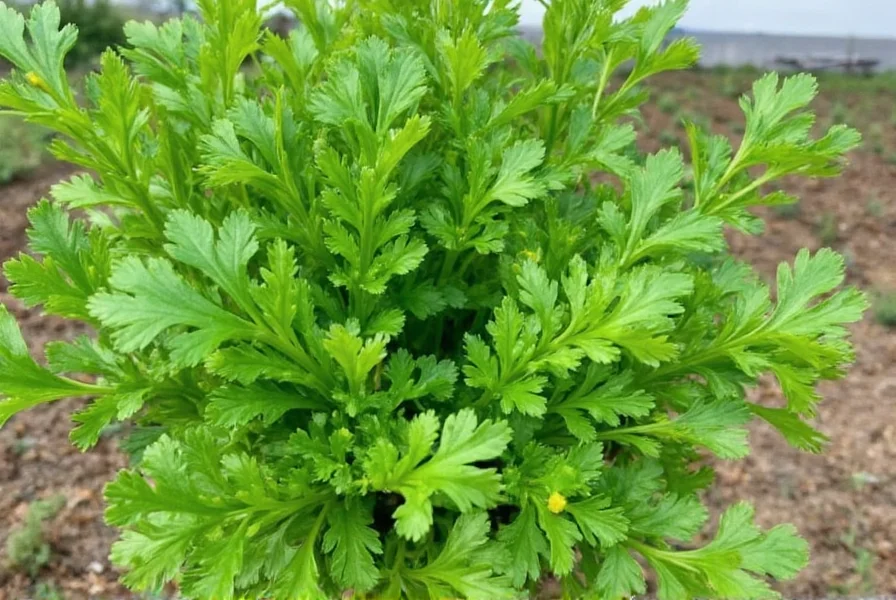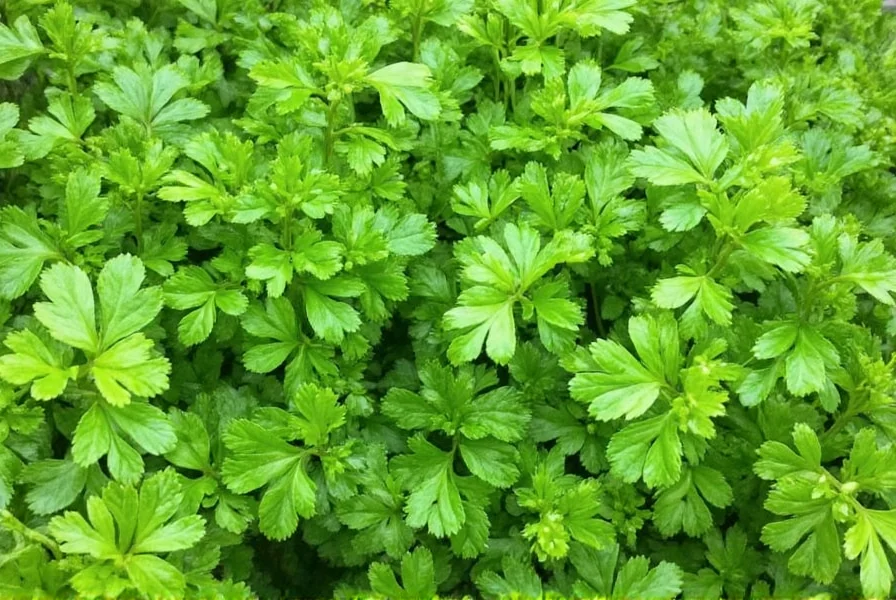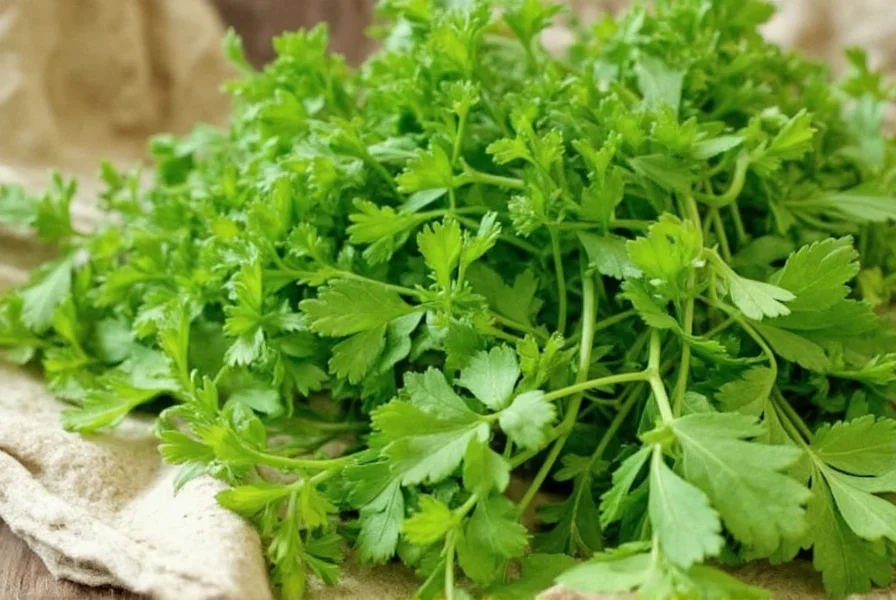Proper harvesting techniques determine whether your coriander plant provides continuous harvests or dies prematurely. Many gardeners unknowingly damage their plants through improper harvesting methods, reducing overall yield by up to 70%. Understanding the plant's growth cycle and harvesting at optimal times ensures maximum flavor and extended productivity.
Recognizing Harvest-Ready Coriander Plants
Coriander (Coriandrum sativum) shows clear visual indicators when ready for harvest. For leaf harvesting (cilantro), wait until plants reach 6-8 inches in height with multiple sets of true leaves. The stems should be vibrant green with no yellowing. For seed harvesting (coriander), monitor the seed heads as they transition from green to brown.
Timing varies by climate zone:
| Climate Zone | Leaf Harvest Window | Seed Harvest Window |
|---|---|---|
| Temperate (Zones 3-7) | 50-60 days after planting | 100-120 days after planting |
| Mediterranean (Zones 8-10) | 40-50 days after planting | 90-110 days after planting |
| Tropical (Zones 11-13) | 30-40 days after planting | 80-100 days after planting |
Step-by-Step Leaf Harvesting Process
Follow these steps for sustainable leaf harvesting that encourages regrowth:
- Harvest in early morning when essential oils are most concentrated
- Select outer stems showing mature leaf development
- Use sharp scissors to cut 1-2 inches above soil line
- Remove no more than one-third of the plant at any harvest
- Water lightly after harvesting to stimulate new growth
This method of how to harvest coriander without killing the plant maintains the root system's energy reserves while encouraging lateral branching. Plants harvested using this technique typically produce 3-5 harvest cycles before bolting.

Harvesting Coriander Seeds Successfully
When growing coriander for seeds (often called coriander seed harvesting), timing is critical. The optimal window occurs when seed heads turn from green to light brown but before they dry completely and shatter. Here's the recommended process:
- Monitor seed heads daily as they mature
- Cut entire seed heads when 70-80% have turned brown
- Place in paper bags for continued drying
- Store in a cool, dark location for 2-3 weeks
- Thresh by rubbing dried seed heads between palms
- Winnow to separate seeds from chaff
Professional growers recommend the best time to harvest coriander seeds is when morning dew has evaporated but before midday heat. This preserves essential oils and prevents premature shattering.
Avoiding Common Harvesting Mistakes
Gardeners frequently make these harvesting errors that reduce yield:
- Over-harvesting - Removing more than 30% of foliage at once stresses the plant
- Improper cutting height - Cutting too close to soil damages growing points
- Harvesting during heat - Midday harvesting reduces essential oil content
- Waiting too long for seeds - Fully dried seeds shatter and scatter
- Using dull tools - Crushes stems rather than making clean cuts
Understanding when to harvest coriander leaves for continuous growth prevents these issues. Regular, moderate harvesting actually encourages bushier growth and delays bolting.
Post-Harvest Care for Continued Production
After harvesting, proper care extends your plant's productive life:
- Apply balanced liquid fertilizer at half-strength 3 days after harvesting
- Maintain consistent moisture (1 inch of water weekly)
- Provide partial shade during hottest part of day
- Remove any yellowing leaves to prevent disease
- Pinch off flower buds to delay bolting and extend leaf production
Plants receiving proper post-harvest care for coriander plants often continue producing for 2-3 months in ideal conditions. In cooler climates, you may achieve multiple planting cycles throughout the growing season.
Storing Harvested Coriander
Maximize shelf life with these storage techniques:
- Fresh leaves: Place stems in water like cut flowers, cover loosely with plastic bag, refrigerate (lasts 7-10 days)
- Drying leaves: Hang small bunches upside down in dark, well-ventilated area (reduces flavor intensity)
- Freezing: Chop leaves, mix with oil or water, freeze in ice cube trays (preserves 90% flavor)
- Seeds: Store in airtight container in cool, dark place (remains potent for 1-2 years)
For gardeners wondering how to store harvested coriander leaves long term, freezing in oil preserves flavor better than drying. The oil-infused cubes work perfectly for cooking applications.

Troubleshooting Harvesting Issues
Address these common harvesting problems:
- Plant bolts prematurely: Harvest more frequently to delay flowering; provide afternoon shade in hot climates
- Leaves taste bitter: Harvest earlier in morning; avoid harvesting during flowering stage
- Slow regrowth after harvest: Apply nitrogen-rich fertilizer; ensure adequate water
- Seeds don't mature evenly: Harvest in multiple passes as seed heads ripen
Understanding the complete coriander harvesting process from seed to storage helps address these issues before they significantly impact your yield.
Can I harvest coriander leaves after it flowers?
Yes, but the flavor changes significantly once coriander bolts. Leaves become more bitter and less aromatic after flowering. For best flavor, harvest leaves before flowering begins. If your plant has already flowered, you can still harvest leaves, but expect a different taste profile suitable for certain dishes.
How often can I harvest coriander leaves?
You can harvest coriander leaves every 7-10 days once the plant reaches maturity. Always remove no more than one-third of the plant at each harvest to allow for proper recovery. In ideal conditions, a single plant can provide 3-5 harvests before it bolts, especially if you pinch off flower buds as they appear.
What's the best way to harvest coriander for continuous growth?
For continuous growth, harvest only the outer stems, cutting 1-2 inches above the soil line. This technique encourages new growth from the center of the plant. Harvest in the morning when essential oils are most concentrated, and never remove more than 30% of the foliage at once. Regular, moderate harvesting actually stimulates bushier growth and extends the plant's productive life.
Should I harvest coriander before or after rain?
Always harvest coriander after the morning dew has evaporated but before midday heat, ideally on dry days. Harvesting immediately after rain increases the risk of fungal diseases as moisture gets trapped in cut stems. If you must harvest after rain, wait until leaves are completely dry to the touch, which usually takes 2-3 hours after rainfall stops.
How do I know when coriander seeds are ready for harvest?
Coriander seeds are ready when the seed heads turn from green to light brown but before they dry completely and shatter. The optimal harvest window is when 70-80% of seeds on a head have changed color. Test by gently shaking the seed head - if mature seeds fall off easily, harvest immediately. For best results, cut entire seed heads in the morning after dew has evaporated.











 浙公网安备
33010002000092号
浙公网安备
33010002000092号 浙B2-20120091-4
浙B2-20120091-4